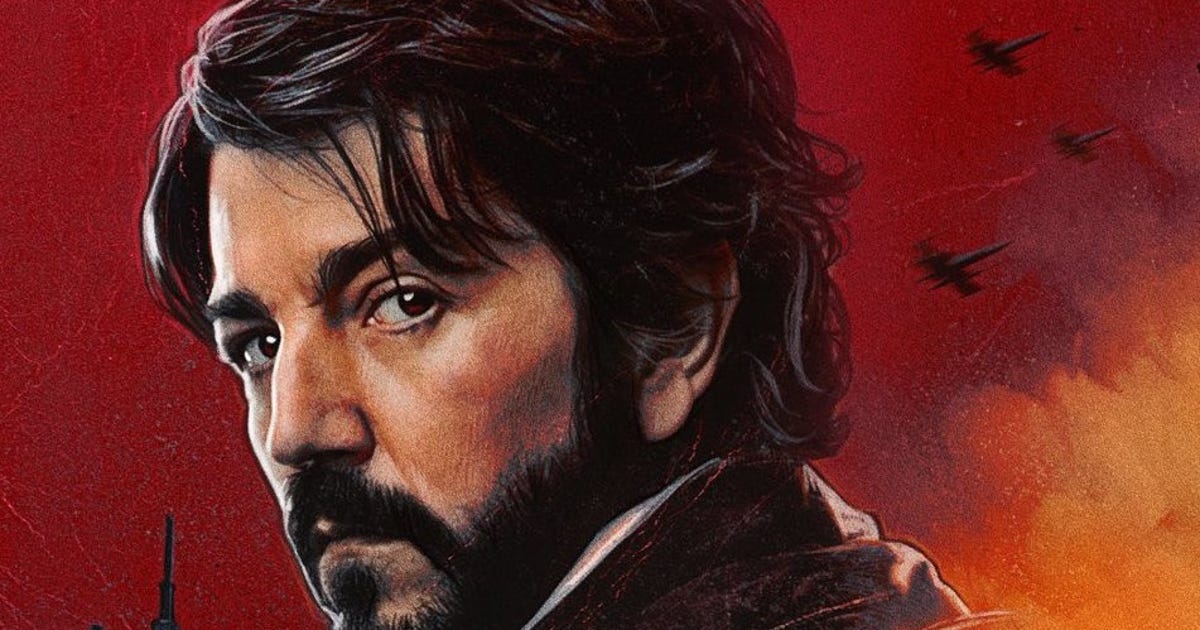
It was a fantastic year for television. I probably said that last year — and potentially the year before — but facts are facts. Television has never been better.
This year, however, was especially compelling for its variety. Big-budget shows like House of the Dragon delivered, but we also got compelling sci-fi with The Peripheral, genius comedies like Bad Sisters and subversive anime like Spy X Family. Even the down-in-the-doldrums Star Wars franchise got itself a genuine masterpiece in Andor.
So, without further ado and in no particular order, here are the CNET crew’s favorite shows of 2022.
Read more: CNET’s favorite movies of 2022
Andor
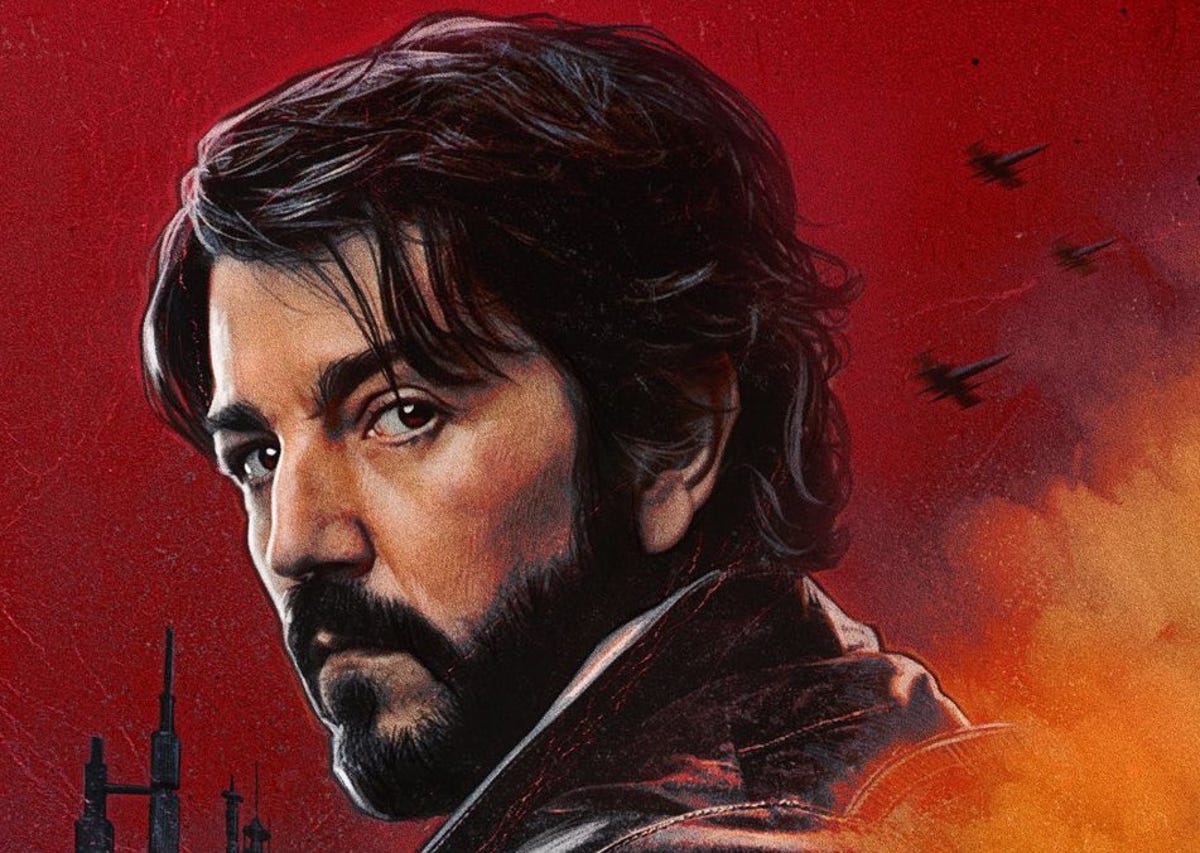
Lucasfilm
I’ve fantasized about living in the Star Wars universe for decades (who hasn’t?) and Andor reveals what it’d actually be like. In this show, you’ll forget that this is a galaxy run by a space wizard that shoots lightning from his fingers.
Instead, you’ll be focused on the grinding reality of life under an oppressive regime’s boot, the danger of trying to climb its corporate ladder and the power of collective action in facing overwhelming odds.
Getting to follow Diego Luna on the path to becoming his morally gray Rogue One hero is a treat, but Andor’s real joys are the unseen tales of rebels, Imperials and one unnervingly obsessed space cop. Andor is the best Star Wars story since The Empire Strikes Back.
—Sean Keane
House of the Dragon
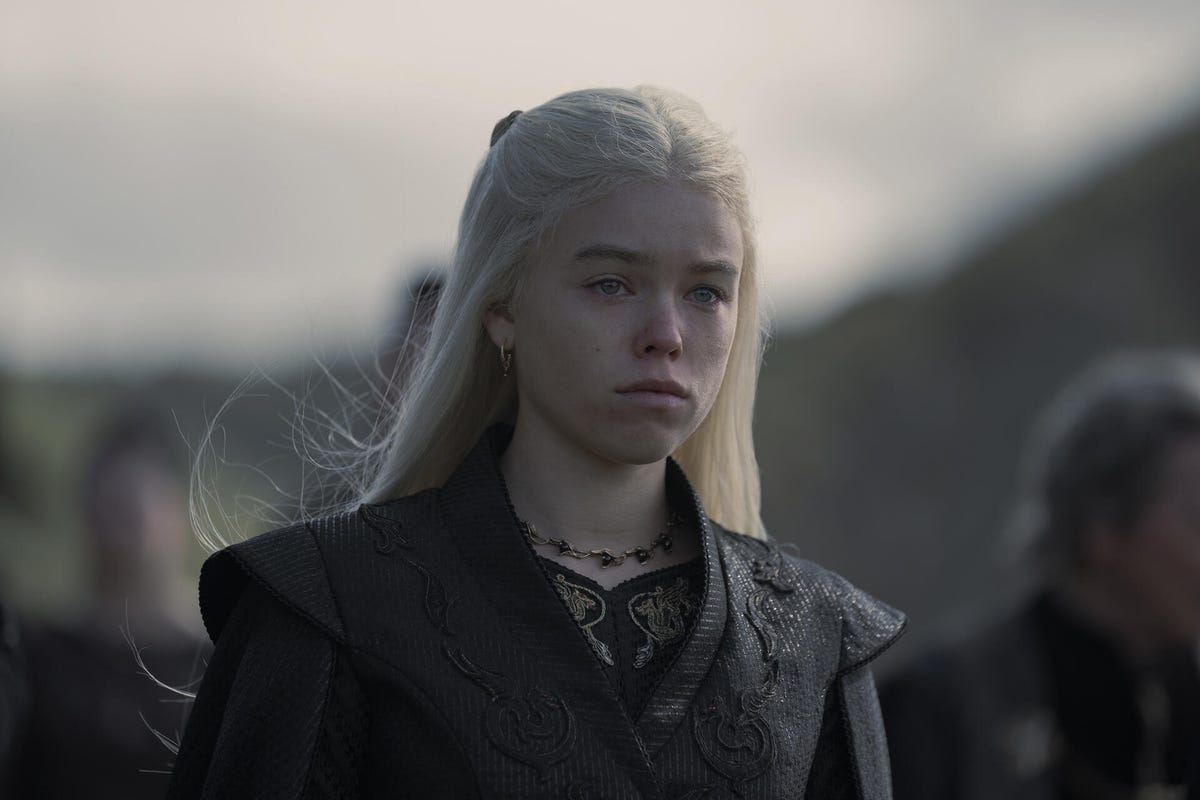
Ollie Upton/HBO
House of the Dragon was the most pleasant TV surprise of 2022. Yes, the show has pacing issues and some episodes were way too dark. But think back to the beginning of the year, when House of the Dragon was a mystery. Considering the foul taste Game of Thrones’ eighth season left in many mouths, there was an undeniable inclination to think House of the Dragon would inherit the worst attributes from its predecessor and few of its strengths.
House of the Dragon is different enough from Game of Thrones to stand on its own, but similar enough to remind you of why you loved Game of Thrones in the first place. That’s a big win.
—Dan Van Boom
Cyberpunk: Edgerunners
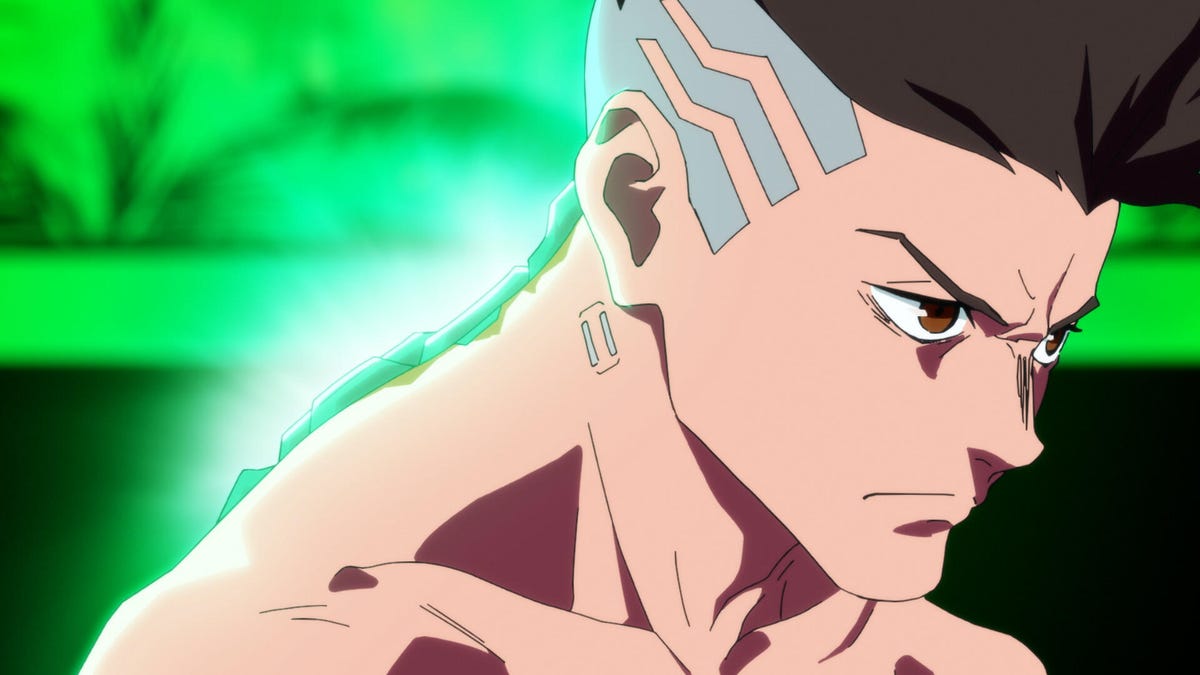
Netflix
Some shows just have no right being good.
Cyberpunk: Edgerunners – an anime based on an ambitious, buggy video game the internet dunked on for months – shouldn’t be one of the best TV shows of 2022, but it is. Easily.
The end result of a collab between game developer CD Projekt Red and Studio Trigger, Cyberpunk: Edgerunners is a neon-drenched exercise in pure hyperstyle. It’s as good as any anime I’ve watched in the last decade. A compact, well-told story about the consequences of poverty and the pursuit of pure capital at all costs. I suspect I’ll be watching and rewatching this masterpiece for years to come.
—Mark Serrels
Bad Sisters
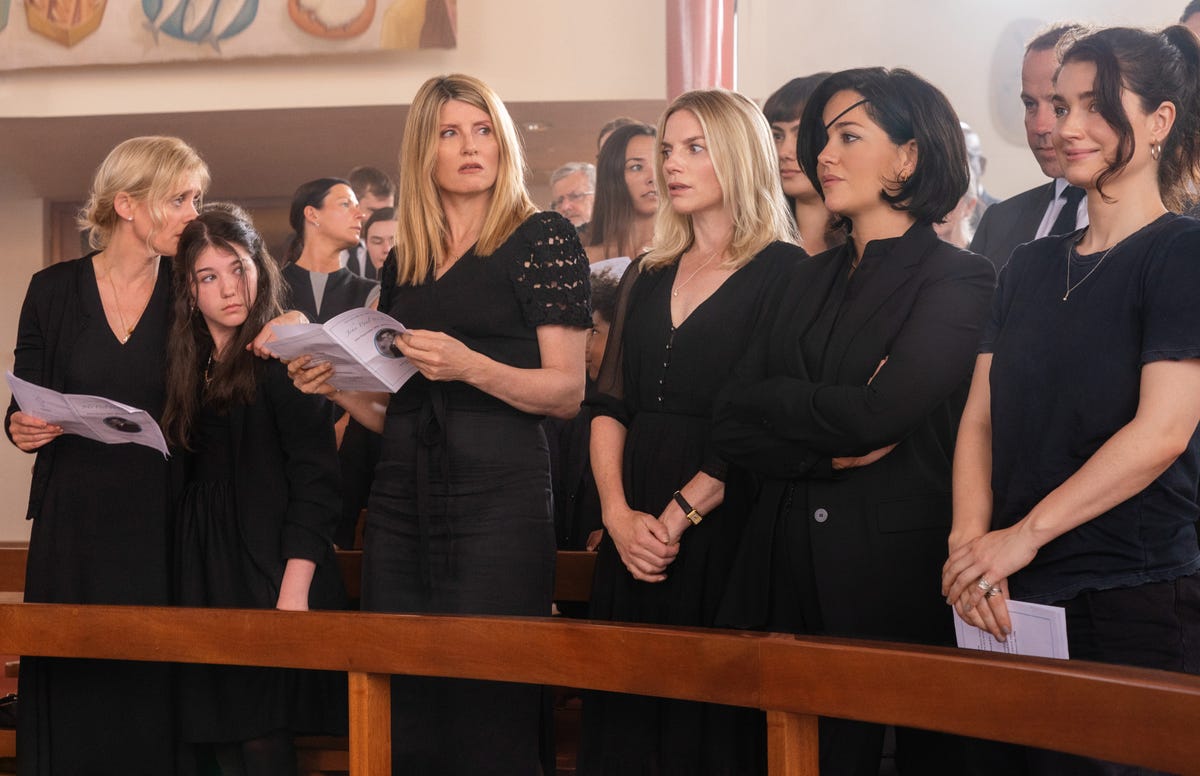
Apple TV Plus
This superb Irish black comedy comes from the pen of prolific sitcom writer Sharon Horgan (Pulling, Catastrophe, Motherland). Four sisters plot to kill their brother-in-law Jean-Paul after he mistreats each of them, including his wife Grace. Jean-Paul is possibly one of the greatest villains on TV — his pet name for Grace, “Mammy,” will haunt your days, long after you down this insane cocktail of murder mystery comedy thriller. An absolute gem.
—Jen Bisset
The White Lotus, season 2
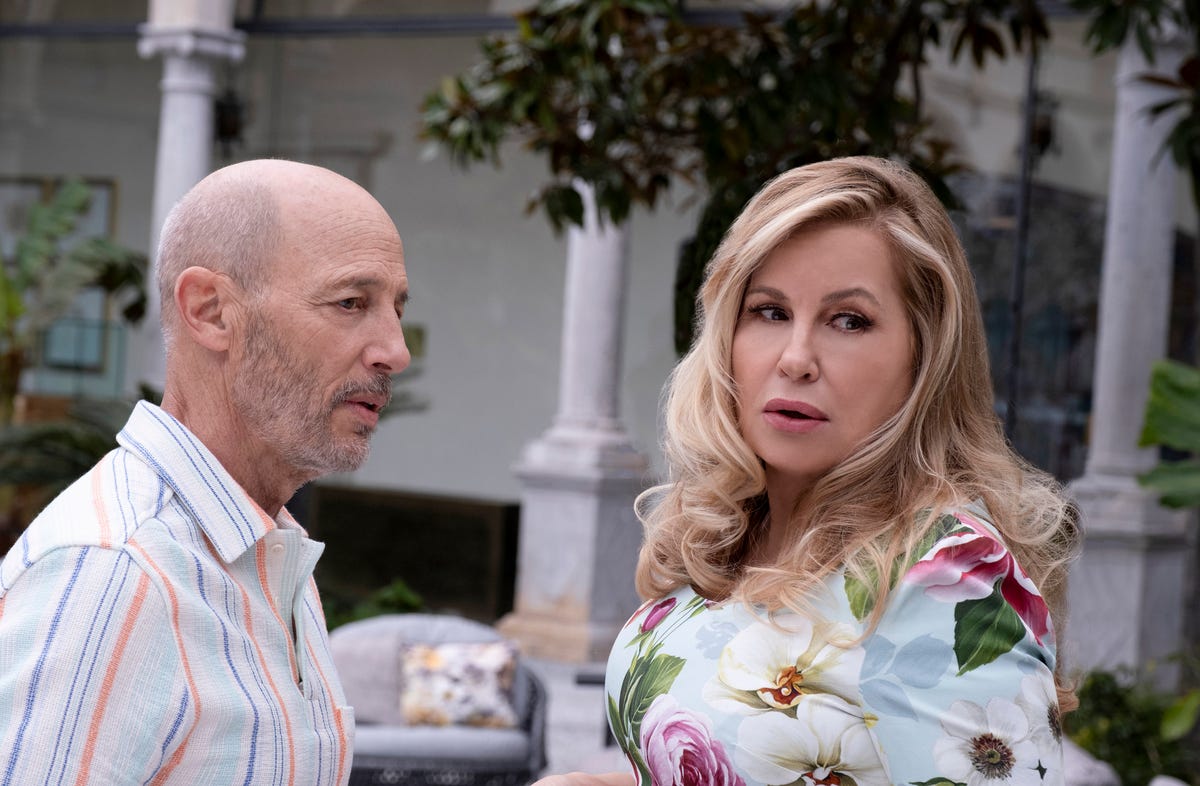
HBO Max
HBO closed out the year with seven weeks of sweet, sweet schadenfreude, making me long for the proverbial water cooler so I could dissect each The White Lotus character’s likelihood of dying. This season’s rich-people playground: a resort in Sicily with requisite crashing waves on craggy shores, crumbling palazzi, and “influential local families.”
Throw in a couple of enterprising sex workers, some spouse-swapping and drug induced foibles, and you got yourself some appointment television. Not only did the sophomore season of The White Lotus bring the denizens of Twitter together in delicious shared suspense, it was also just an extremely well made entry into the prestige TV canon, with onion-y layers of subtext and an embarrassment of Emmy-worthy performances.
—Karisa Langlo
The Bear
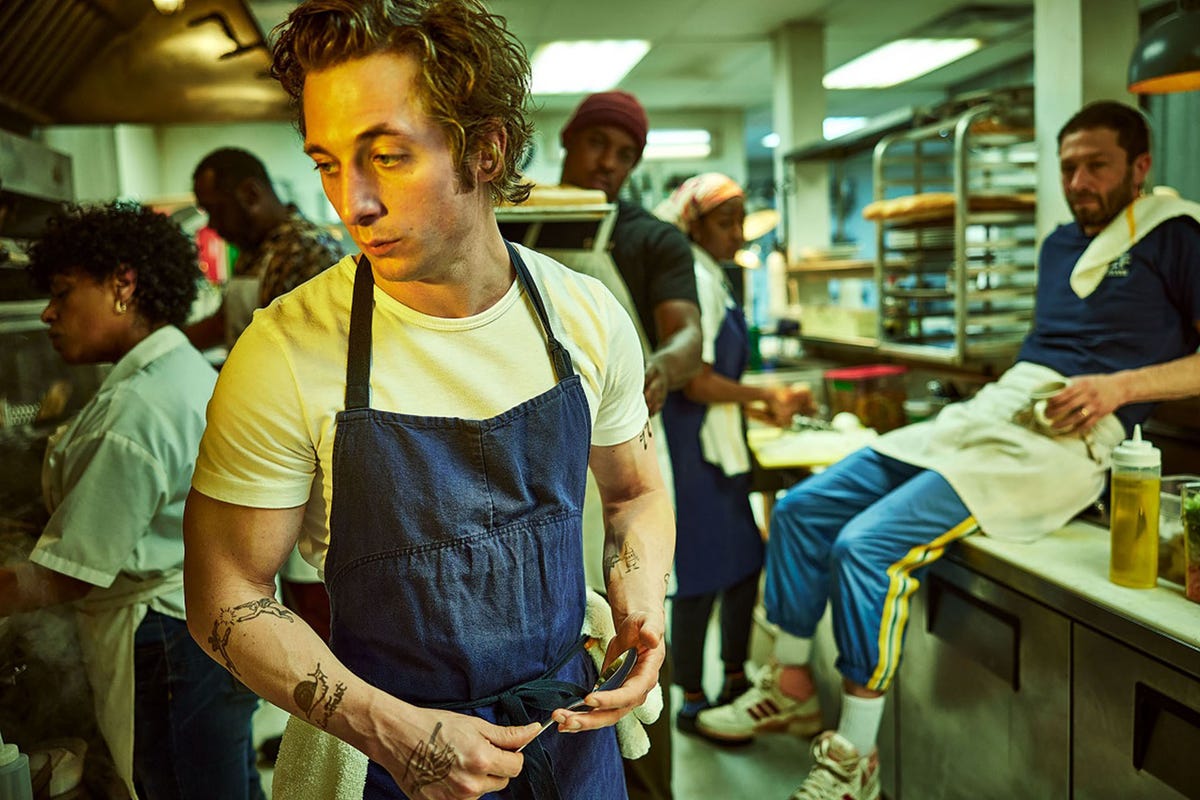
Hulu
I’ve never worked in the food industry, and The Bear showed I made the right decision. This frantic Hulu/Disney Plus slice-of-life drama played like an extended panic attack, yet managed to also be funny and ultimately heartwarming. Anchored by winning performances from Ayo Edebiri, an incendiary Ebon Moss-Bachrach, and Jeremy Allen White’s tight white T-shirt, The Bear irresistibly cooked up a portrait of a work family you couldn’t help rooting for. Yes chef!
—Richard Trenholm
Severance
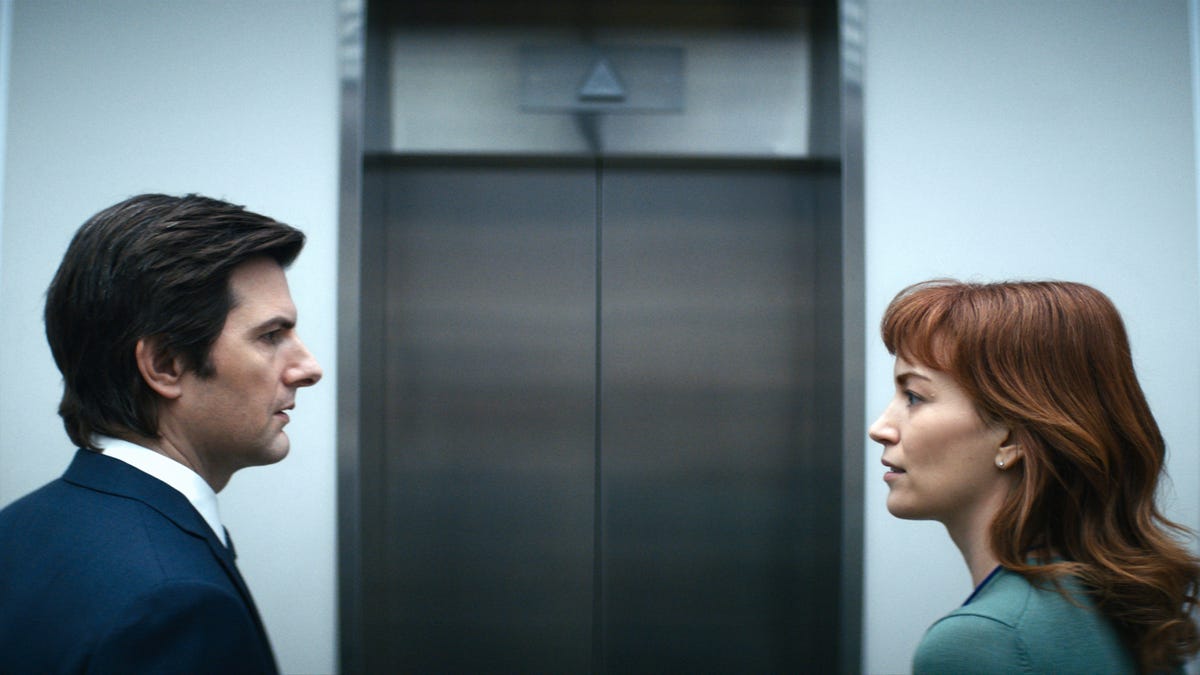
Apple TV Plus
In the heart of an Omicron winter that removed me from family and friends yet again, as I wrestled with feelings of living a remote work life and coming back to an office that felt alien to me, Severance arrived like a psychological tuning fork to resonate with everything I needed.
Apple TV Plus’ breakout critical hit show got me from the first trailers: its bleak, absurd, retro style, which reminded me of everything from Netflix’s Maniac to Charlie Kaufman movies like Being John Malkovich. The idea of workers finding their home and work lives severed from each other didn’t floor me (I have a high ceiling for weirdness). But the tone, the relentless commitment to the unfolding mystery, is unforgettably hypnotic. I played the video game The Stanley Parable: Ultra Deluxe shortly after, and found it spoke to similar obsessions: a sense of time vanishing, life repeating, mental anguish and fighting repression and depression.
Also, Severance is fun. The cast is stellar, and I could watch them all forever. It’s slyly funny, far more than I thought it would be. The ending of season 1 let me down only because I was ready for this to go so much further. I guess that’s what season 2 is for.
—Scott Stein
The Peripheral
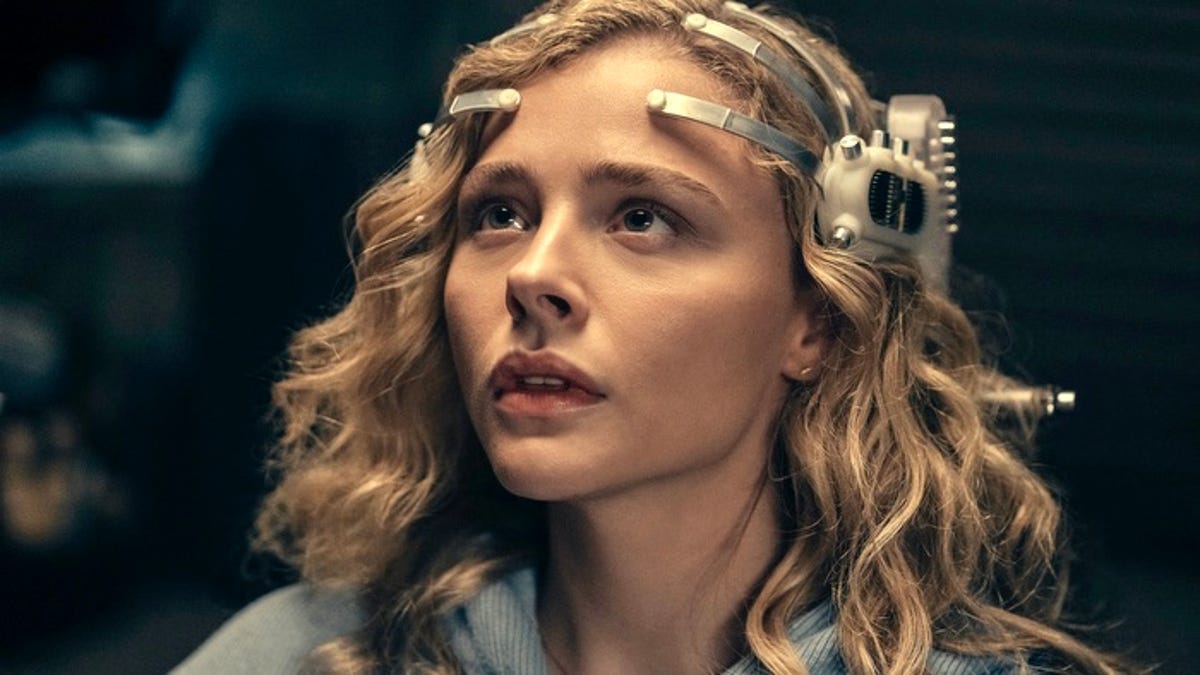
Prime Video
Some science fiction shows disappoint me. As a lifelong William Gibson fan who’s read all his work, I expected The Peripheral, an adaption of Gibson’s 2015 book that’s part of a three-volume trilogy, to let me down. It didn’t.
The Prime Video series is everything I could want: disorienting storylines, strange near and farther-future settings, and plenty of big ideas (robotic telepresence, technological time travel) made this must-view TV for me. The idea of people jumping into other bodies using VR-like telepresence devices is something I’ve obsessed over since Avatar, and still feels ahead of its time.
But The Peripheral gets a lot odder than that. My wife got hooked, too, which is no easy feat. We don’t always agree on shows, but The Peripheral works as a reflection on our cracked, broken current world, fears of disasters yet to come, and also serves as a good, tangled sci-fi action-thriller. I was truly sad to be left on a Season One cliffhanger, but Season Two already promises to be very interesting. If you want more, just go read Gibson’s two books that are already available.
—Scott Stein
Abbott Elementary
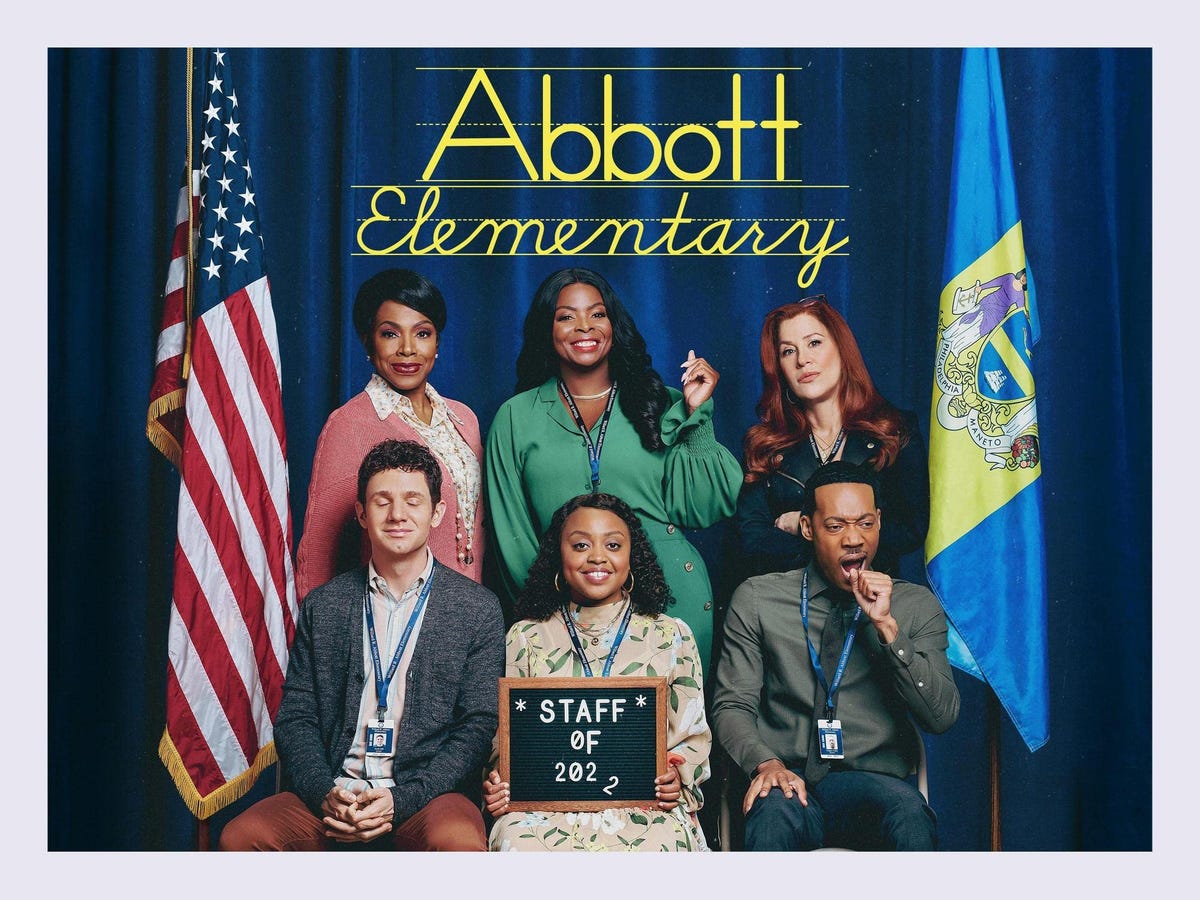
ABC
All hail, Quinta Brunson, creator, star and Emmy-winning writer of this hit comedy. Set at a Philadelphia public school that’s predominantly Black, the mockumentary series follows a handful of teachers and their social media influencer of a principal (Janelle James) who are just trying to do the best for their kids with the very limited resources they have. Sheryl Lee Ralph, who plays veteran teacher Barbara, also won an Emmy this year. (And if there’s an award for best acceptance speech ever, give her that one too.) Abbott Elementary is that rare show that’s hilarious and heartwarming. Just try to keep up with all the pop culture references. Plus, Gritty guest stars. Enough said.
—Anne Dujmovic
The Last Movie Stars
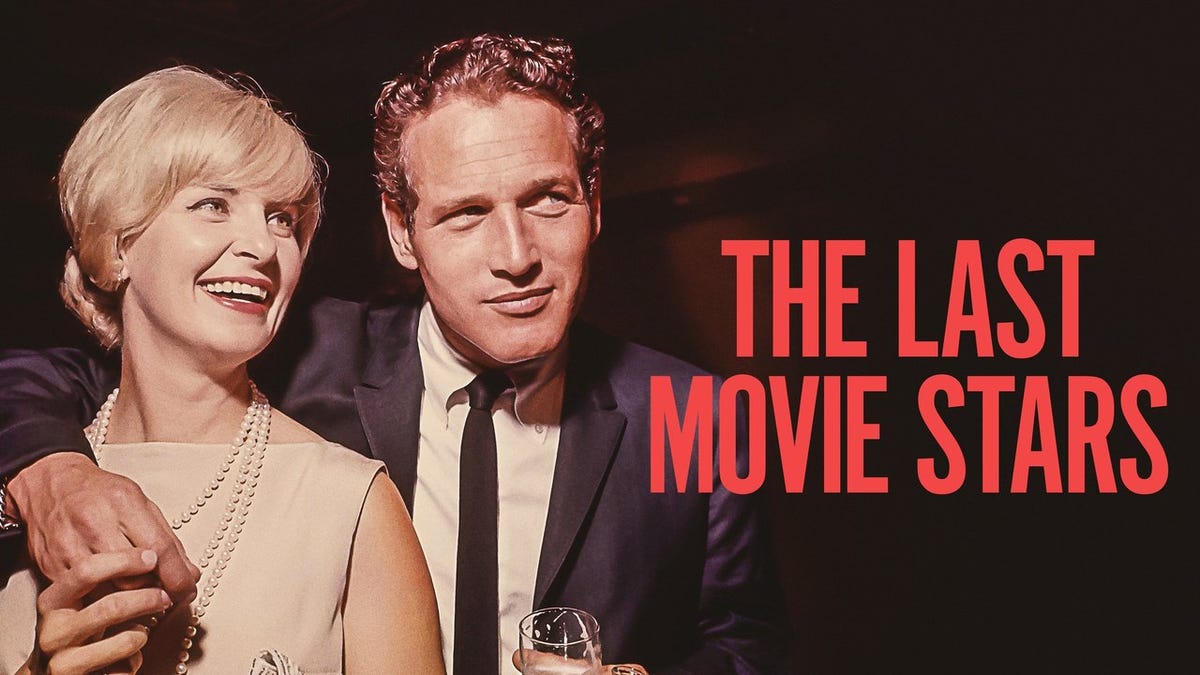
HBO Max
In the ’80s, Paul Newman embarked on a memoir project. Friend and screenwriter Stewart Stern conducted interviews with the actor and those closest to him, including wife Joanne Woodward, directors, famous friends and even his ex-wife. Newman later abandoned the project and burned the audiotapes, but thousands of pages of transcripts survived. This six-part documentary series about legendary actors Newman and Woodward uses those transcripts to take a loving yet unvarnished look at the couple, their public and private lives, and their 50-year marriage.
Actor Ethan Hawke, who directed the series, brilliantly weaves film clips together with voiceovers from the likes of George Clooney (reciting Newman’s words) and Laura Linney (reading as Woodward) among other well-known actors. Hawke also includes excerpts of his Zoom interviews with the actors he recruited, as well as the children of the iconic Hollywood couple, while he was putting the series together. The words “compelling” and “Zoom meetings” aren’t words you’d expect to see in the same sentence. But these meetings are just that, giving viewers a window into Hawke’s creative process as he wrestles with how to tackle a project of this magnitude and during a pandemic too.
—Anne Dujmovic
Barry
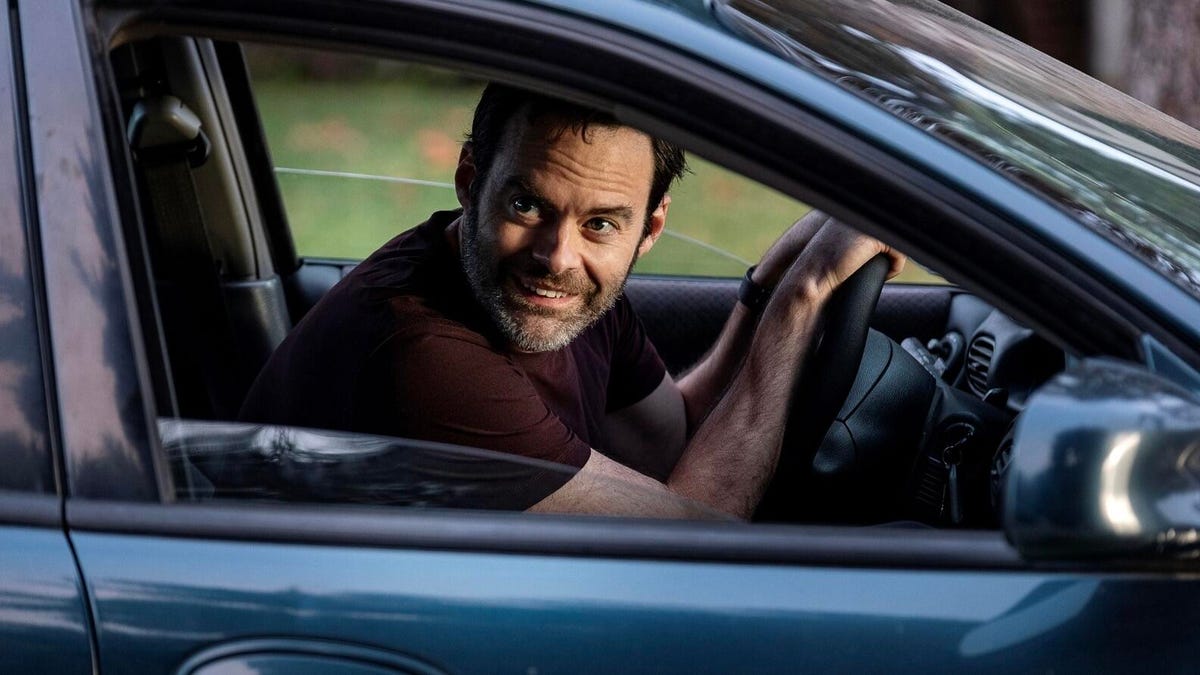
HBO
When I first started watching Barry, I thought the goal of executive producers Bill Hader and Alec Berg was to create a wacky comedy about a hitman trying to become an actor. Now I’m convinced Barry is one of the best shows on television.
During the show’s run, The Ringer had a weekly recap with Hader on The Prestige TV Podcast. You could listen Hader breaking down complex shots and deep subject matter almost nonchalantly. He broke down his inspiration for certain elements of the story, discussing how writers on the show would solve plot puzzles, while making sure the show was still funny throughout. Watching season 3 had me saying to myself, time and time again, that this show shouldn’t be this good — but it is.
—Oscar Gonzales
SAS: Rogue Heroes
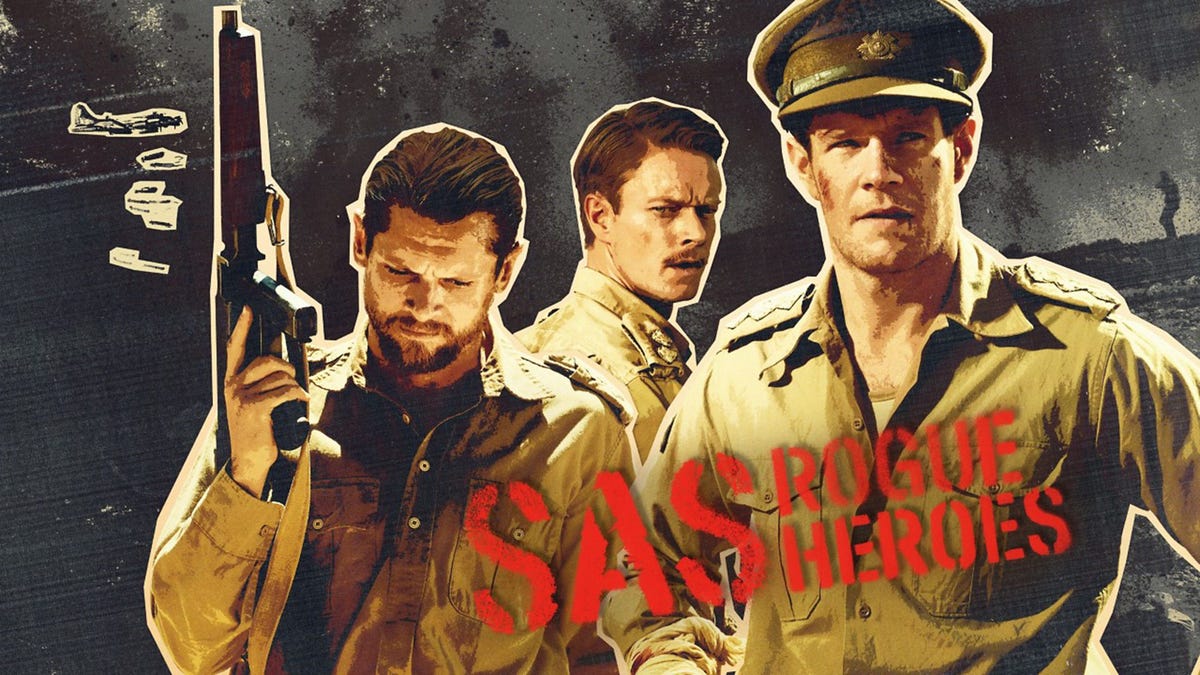
BBC
I was laid up sick a couple of weeks ago, so a show about World War II commandos from the guy who wrote Peaky Blinders was a perfectly timed guilty pleasure. Rogue Heroes took the rousing heroics of Saturday afternoon classics like The Great Escape and The Guns of Navarone and mashed it up with the anarchic energy of Inglourious Basterds plus AC/DC on the soundtrack. I smashed the whole series in a day. Yes, I am a middle-aged dad, why do you ask?
—Richard Trenholm
Extraordinary Attorney Woo
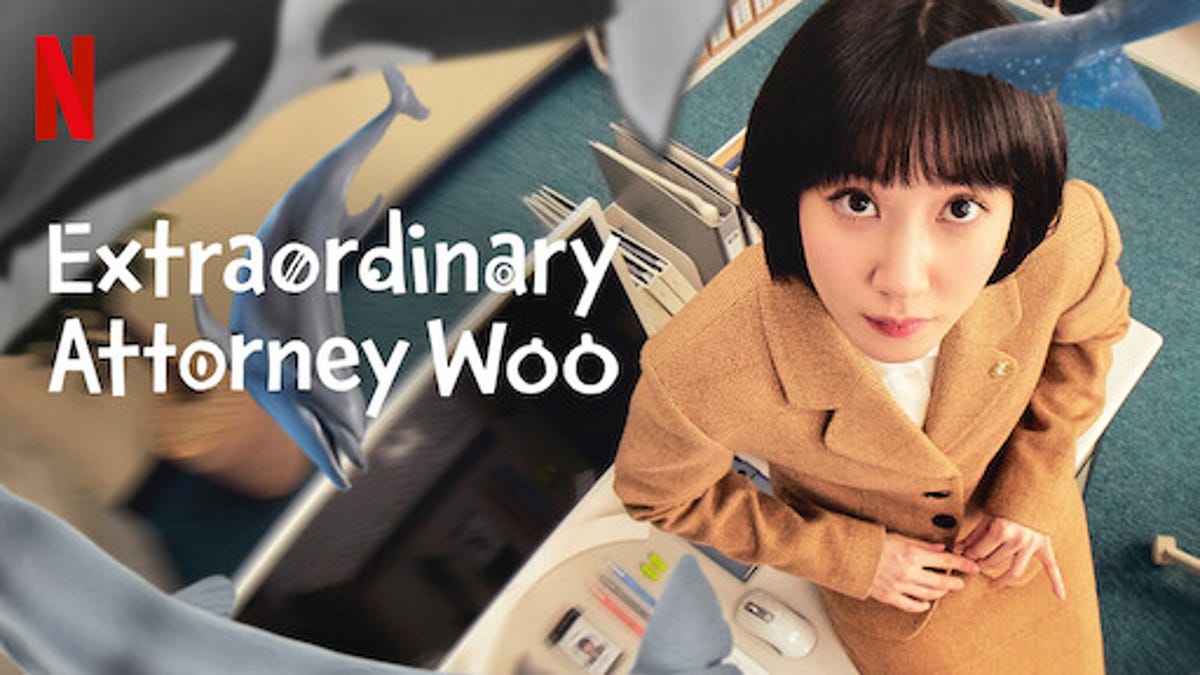
Netflix
Magical. That may sound ridiculous, but that’s what comes to mind when I think about this South Korean legal drama/comedy series. When you enter the world of Woo Young-woo, you enter a world where a charming, quirky young woman who has autism spectrum disorder is forced to challenge people and society’s idea of “normal” every single day. The magic comes from watching Woo Young-woo be herself — she makes mistakes, she misses social cues, she answers questions literally, she follows routines that comfort her but annoy others. She also wins case after case because she’s a brilliant and original thinker with a strong sense of justice who cares deeply about people — a counter to a persistent stereotype that individuals with ASD are emotionally disconnected.
There’s also magic in watching her family, friends and colleagues slowly overcome their prejudices and, to the series’ creators credit, become characters as fully fleshed out as our heroine. At a time when it seems the bad guys win more than they should, watching Woo Young-woo win legal battles, and friends, just makes you feel good. The 16-episode season 1, with a soundtrack that reminds me of the music from Pixar’s Wall-E, was one of the most popular international series on Netflix in 2022. Watch it with the subtitles on. You want to hear from these characters in their own voices.
—Connie Guglielmo
Wednesday
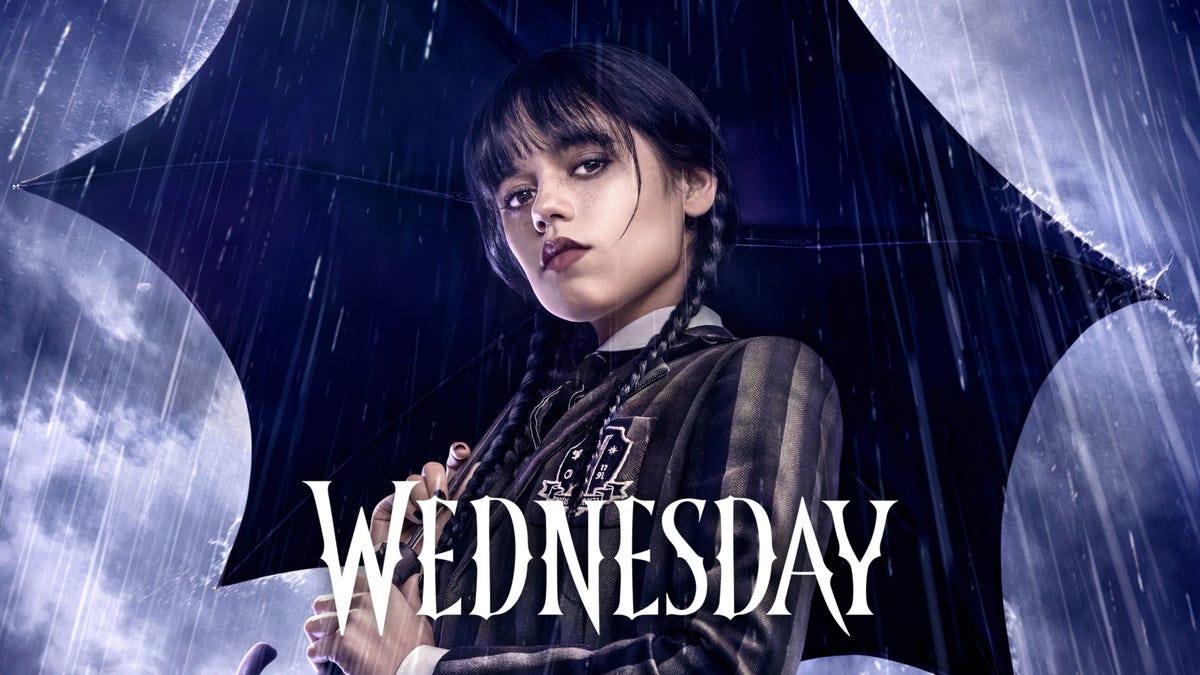
Netflix
If, after the Addams Family movies and ’60s TV series, you felt Wednesday deserved a show of her own, you’re not being kooky (or mysterious or spooky). Directed by Tim Burton, the eight-part Netflix teen melodrama series follows the nihilistic Wednesday’s adventures as she’s expelled from one school (her eighth in five years) and moves on to Nevermore Academy, her parents’ alma mater. While the school is filled with outcasts and monsters of all varieties, Wednesday (a role Jenna Ortega kills) still manages to stand out with her pale skin and black uniform. “She’s allergic to color,” explains her mother, Morticia, played by Catherine Zeta-Jones.
Wednesday’s flat appearance and clear and witty disdain for her peers will keep you in stitches, but there’s a mystery to solve: something is killing off students and townsfolk in the small town of nearby Jericho. The whole family plays supporting roles, including Thing, the disembodied hand that can now roam freely as Wednesday’s sidekick sleuth. Christina Ricci, who played Wednesday in the Addams Family movies of the 1990s, returns to the story as Marylin Thornhill, the school’s only “normie,” or nonmagical teacher, who serves as Wednesday’s dorm mother and sometime mentor.
—Steven Musil
Better Call Saul
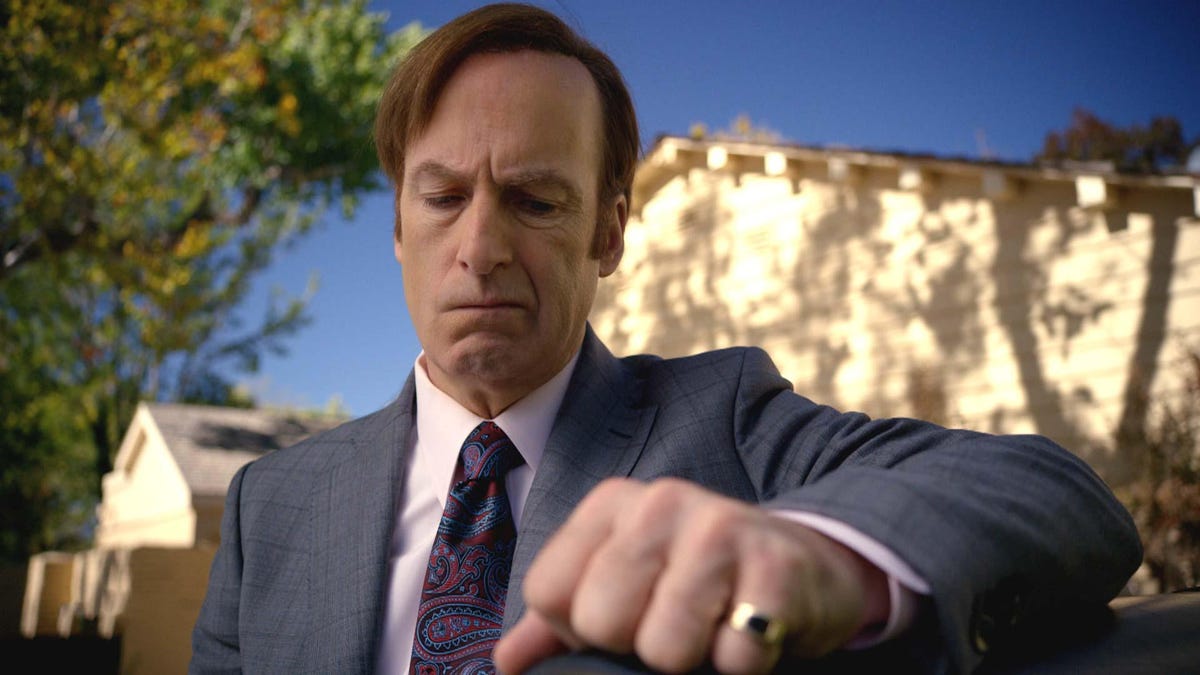
AMC
This Breaking Bad spinoff took a one-note side character — drug cartel lawyer Saul Goodman — through six seasons of increasingly criminal mayhem to create one of the most multifaceted TV characters of the decade. In his last season, Saul, aka James McGill (aka Slippin’ Jimmy, aka Viktor St. Claire, aka Gene Takavic) finally met up with Walter White and Jesse, said farewell to Kim Wexler, Mike Ehrmentraut and Howard Hamlin, and received his ultimate judgment in a series finale that hit all the perfect notes.
Better Call Saul’s final season delivered twists, suspense and a well executed resolution that dipped expertly back and forth between multiple timelines before, during and after Breaking Bad. An understated turn by comedy legend Carol Burnett as an elderly mark who brings about Saul’s downfall was one of several deft guest performances this season. A love story disguised as a crime thriller, Better Call Saul was all about Jimmy and Kim in the end and the show’s inevitable, heartbreaking conclusion put a fitting bow on their absolute disaster of a relationship.
—Peter Butler
Magpie Murders
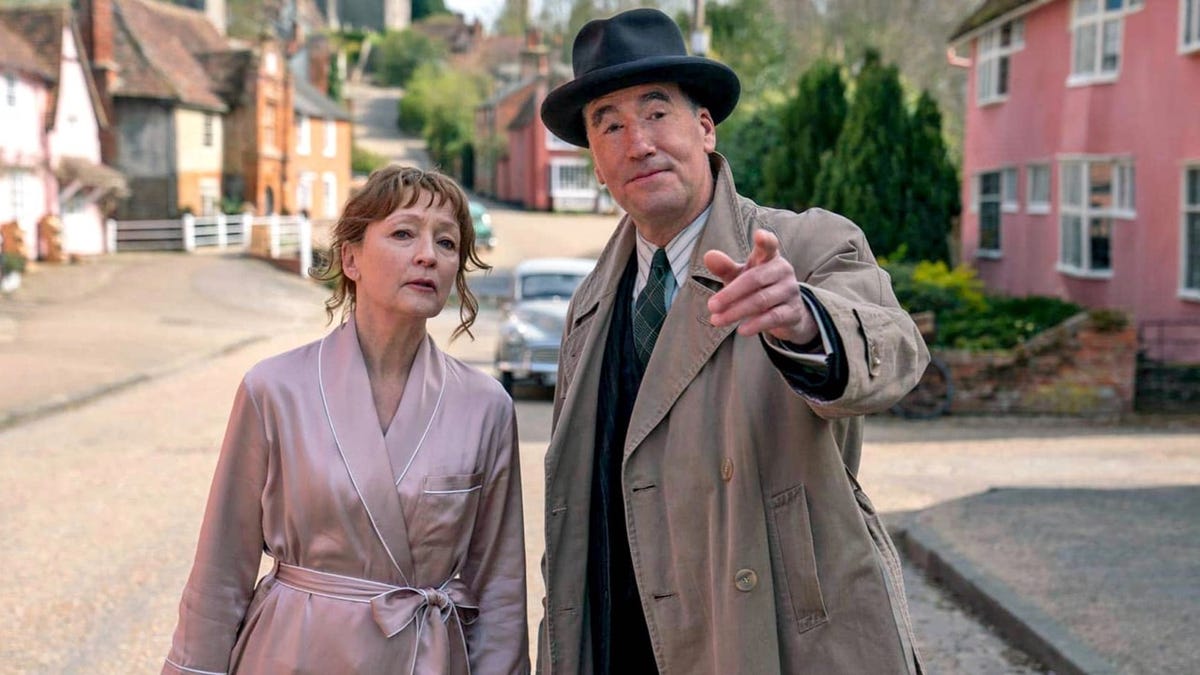
Prime Video
If you’re looking for a whodunit done right, try this delightful time-traveling murder mystery based on Anthony Horowitz’s 2016 best-selling book of the same name. Its story-within-a-story format investigates the suspicious death of successful mystery writer Alan Conway while simultaneously unfolding events in Conway’s latest novel, titled Magpie Murders. You get to play detective for more than a single case here, with impressively interwoven storytelling seamlessly connecting the parallel and increasingly intersecting timelines.
The six-episode series is grippingly suspenseful and wonderfully witty. Plus, part of the action takes place in a 1950s English village that may harbor dark secrets, but has the kind of small-town charm that makes you want to wander its quaint tree-lined streets. The show streams on Prime Video and PBS Masterpiece.
—Leslie Katz
Derry Girls
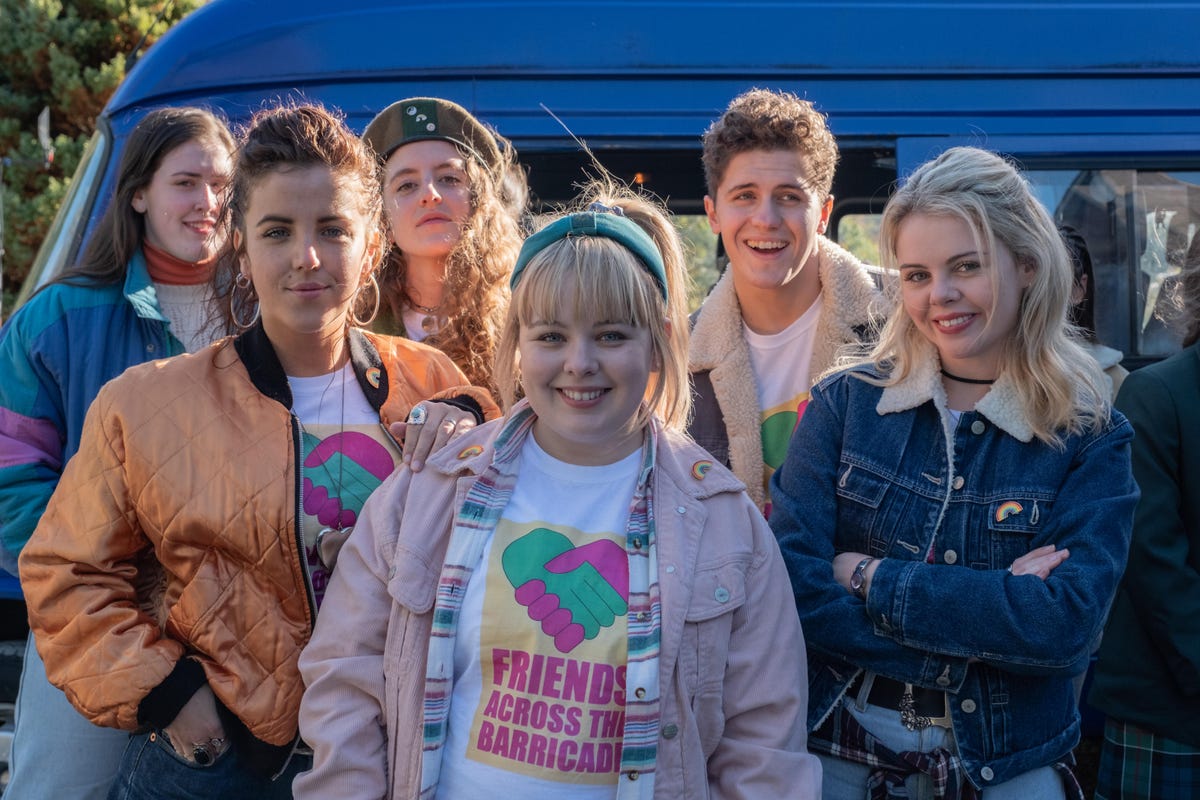
Netflix
Derry Girls premiered its third and final season in October, so you can now binge watch the entire award-winning series in a week like I did. On the surface, this is a teen sitcom about a group of high school girls in the 1990s, living in the small town of Derry, North Ireland, at the end of The Troubles. Most teen girls in TV shows (the fabulous Wednesday Addams aside) are portrayed as self-absorbed, silly and clueless, only caring about being popular and dating boys. Series creator Lisa McGee drew on her own upbringing to deliver a simple message: Yeah. So what?
The Derry Girls are loyal, honest and occasionally wise beyond their years. They’re also funny as hell, with the short episodes (less than 30 minutes except for the finale) focusing on one ridiculous situation after another. The group attend a Catholic school run by the weary, sarcastic and amazing Sister Michael, who became one of my favorite characters. This is another one where you’re going to need the subtitles on. They are speaking English, but I was flummoxed by the accents.
—Connie Guglielmo
The Old Man
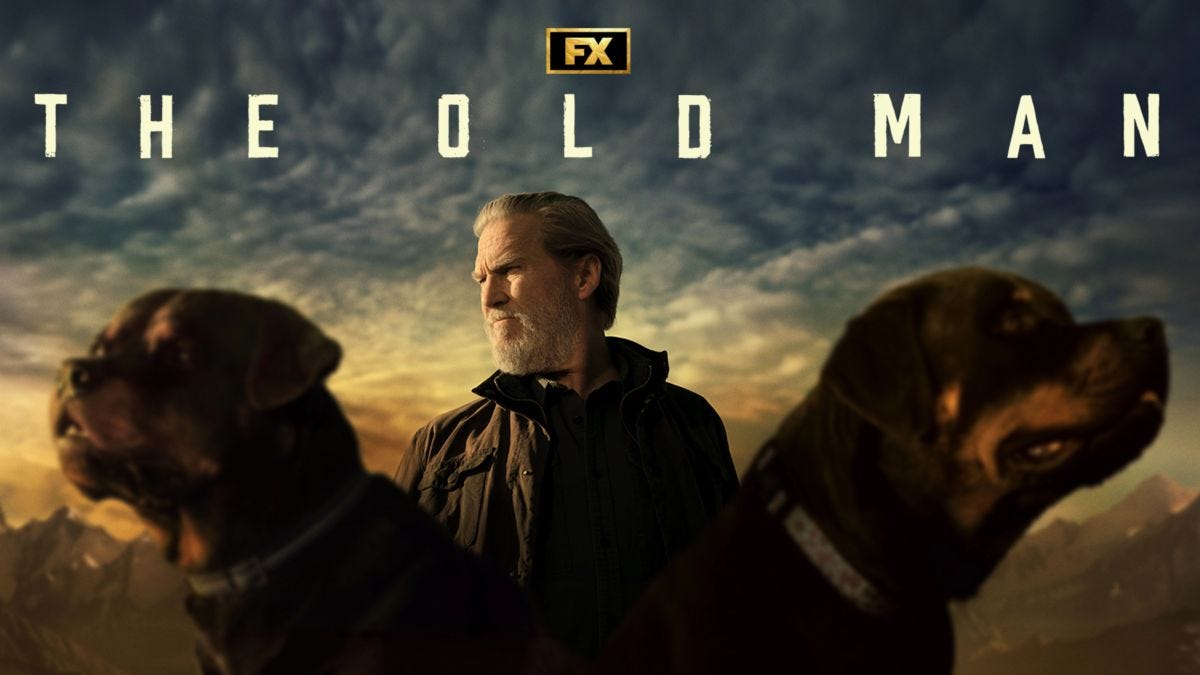
FX
This has been a good year for shows about spies of a certain age. Over the summer we got season 1 of The Old Man, starring the formidable Jeff Bridges, with ever-excellent John Lithgow as a foil. Bridges plays a 70-ish retired CIA agent and man of action haunted by his past and forced back into the game — and he proves that he’s still got the chops for it. (We also meet his younger self in extended flashbacks.)
It’s a tangled tale, of course, with tendrils winding tighter and tighter through his personal and professional life. It tends toward the somber and gets talky at times — like, philosophy seminar talky about deception, duty, identity, family — but there’s plenty of action across the seven episodes, too.
—Jon Skillings
Slow Horses
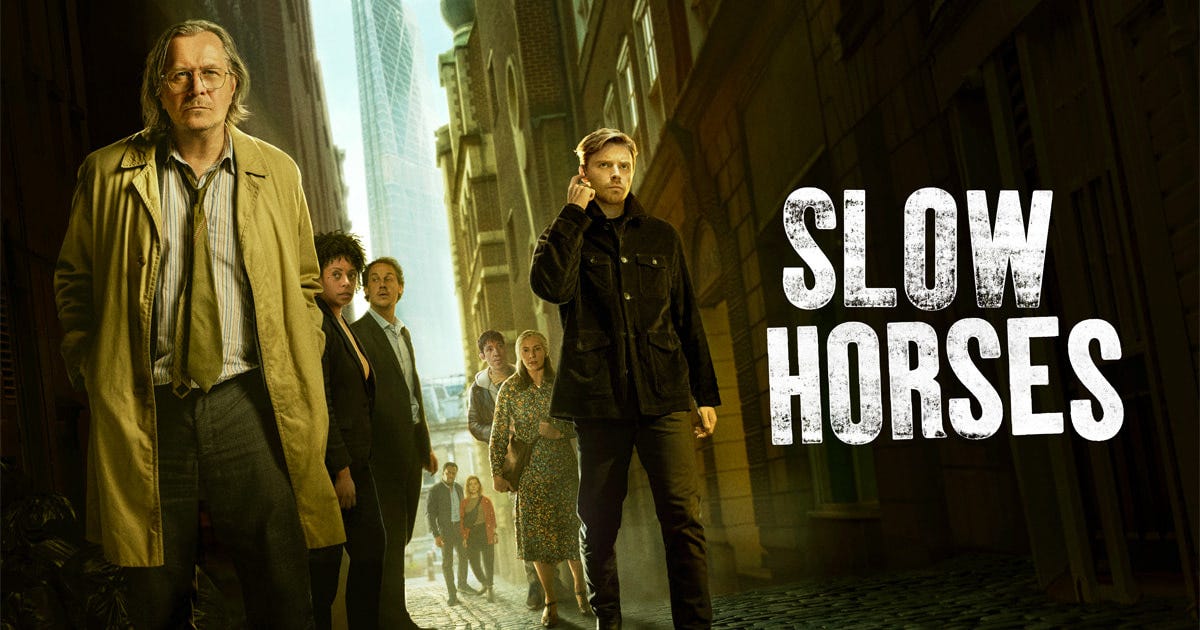
Apple TV
Where The Old Man takes us to locations across the US and elsewhere, especially Afghanistan, Slow Horses largely confines itself to London. It gives us a shabbier set of spies as well, in career purgatory because they messed up big time, under the do-nothing leadership of the brilliantly boozy, rumpled and acid-tongued Gary Oldman. But they stumble their way into a mission, start uncovering secrets and show they’re not to be dismissed so lightly after all, to the chagrin of the higher-ups at shiny MI5 headquarters, including a crisp Kristin Scott Thomas. Season 2 kicked off at the beginning of December, and if you need to catch up on season 1 from earlier this year, it’s a quick and very enjoyable six episodes.
—Jon Skillings
Taskmaster
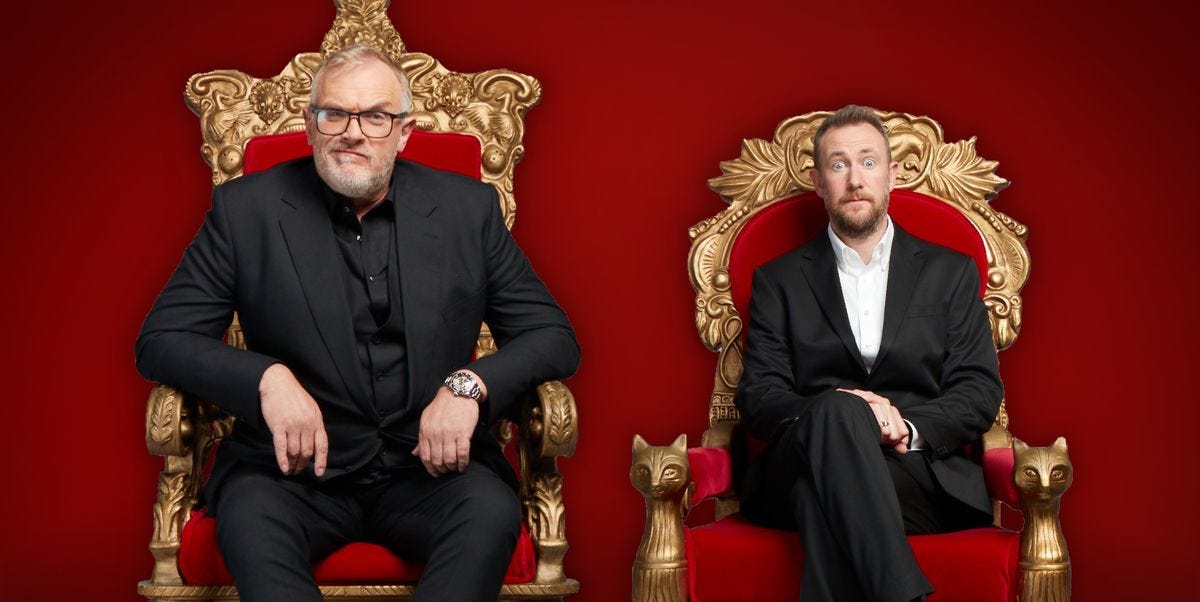
Channel 4
Having just aired its 14th season, Taskmaster has been one of my favorite shows for years now and I am still constantly rewatching all the episodes on a repetitive cycle because of how much it makes me laugh. The multi-award-winning show sees a panel of five comedians from the British comedy scene take part in a variety of bizarre tasks (“Eat the most watermelon” and “Impress this mayor” to name but two) that are then scored and hilariously critiqued by host Greg Davies, assisted by series creator Alex Horne.
Unlike most panel shows, Taskmaster sees the same set of contestants take part in all 10 episodes throughout each series. It not only helps you feel truly invested in the journey toward the final, but it really lets you get to know all of the cast along the way — finding out you love some comics previously unknown to you (for me, Fern Brady, Chris Ramsey or Sarah Kendall) or getting a deeper appreciation of the bizarre minds of those you already loved (Bob Mortimer, Rhod Gilbert, Sally Philips).
While it’s certainly silly and sometimes puerile in its nature, it’s also extremely good-natured, always encouraging you to laugh with the team at both their successes and frequent embarrassing failures. It’s why I’ve found the show to be such a good form of escapism that never fails to lift my mood and make me cry with laughter. Because how can you not laugh at a man trying so hard to fart on cue that he dislodges a hemorrhoid on TV? For a bonus, check out the companion podcast, hosted by Series 9 winner and superb comedian Ed Gamble, that analyzes each episode with a previous contestant or related special guest. Like the show, it’s laugh-out-loud funny and an instant mood lifter.
—Andrew Lanxon
Spy X Family
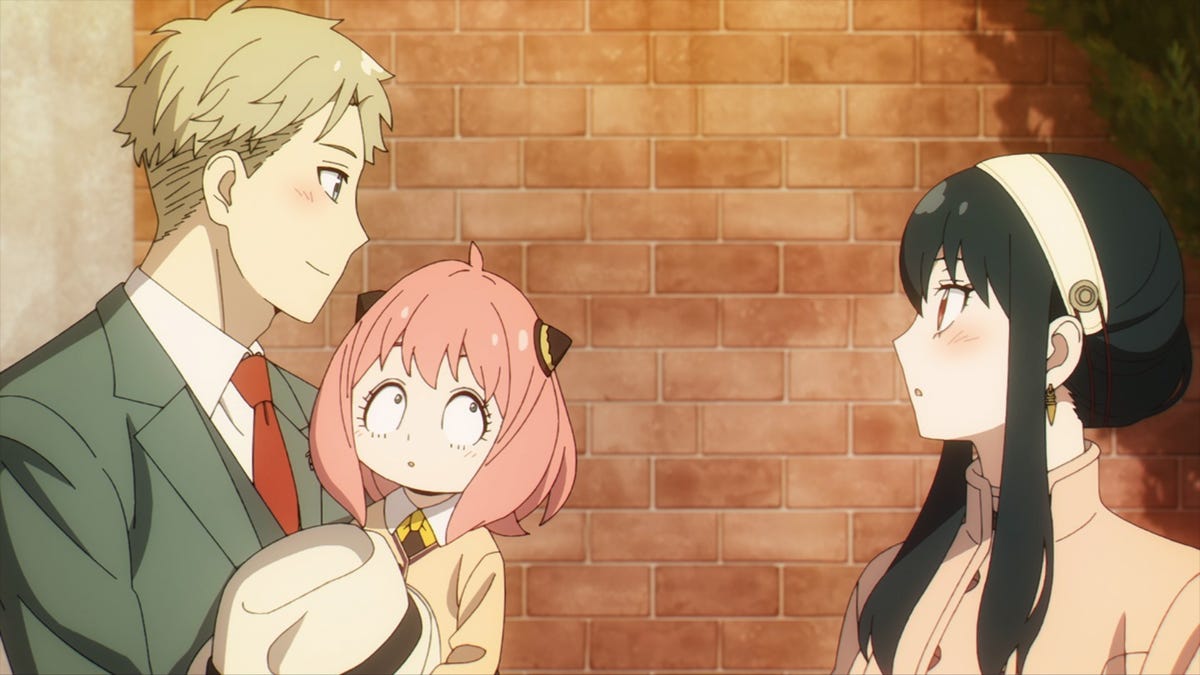
Shueisha
An anime about a slick, ruthless spy, a violent assassin and a little girl with psychic powers make for the most surprising and heartwarming show I’ve seen in a long time. The show, which has the three main characters set up a fake family for infiltration purposes, takes a playful look at the double lives they live and how, despite it all, they’re able to build a warm and supportive family unit out of the facade.
Spy X Family blends and twists multiple genres — family, comedy, action, mystery — in ways that shouldn’t work, but absolutely does. This is the perfect gateway show for anyone intimidated by anime — there are no over-the-top energy blasts, giant robots or other tropes of the medium. The show is available to stream on Hulu and Crunchyroll.
—Roger Cheng
Heartstoppper
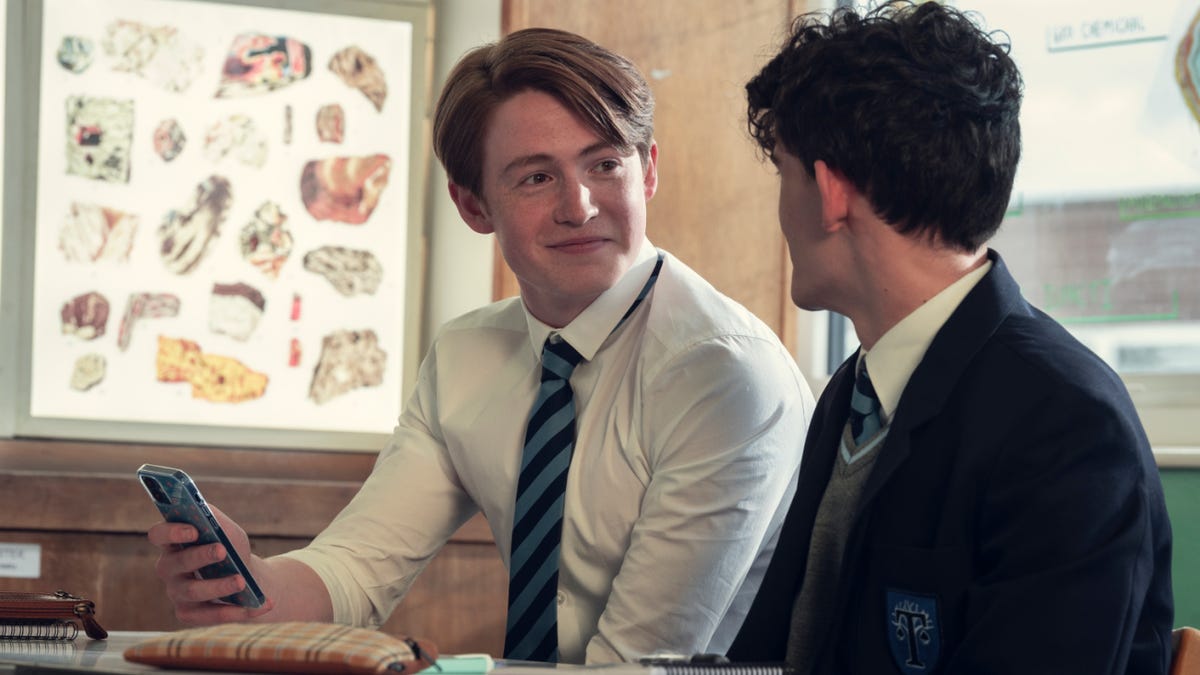
Netflix
Heartstopper is the LGBT show I wish existed when I was a teenager, and that’s an opinion I’m positive many other gay adults share with me. Its super sweet, PG-rated take on a gay love story leans into optimism while including plenty of thematic flourishes that harken back to the original web comic by Alice Oseman.
I love that this isn’t a coming-out story for main protagonist Charlie (Joe Locke), but rather one about how he develops a friendship with his classroom crush Nick (Kit Connor) that evolves into something more over the course of the season. Their relationship — and other relationships that develop in their wider circle of friends — is treated as something they are discovering and navigating. Even more encouraging for young audiences, nearly every adult character introduced in the first season, whether parent or teacher, displays compassion and support for the main cast.
Major bonus points to the soundtrack, whose playlist of bouncy punk, rock and pop has completely taken over my Apple Music Replay list for 2022.
While there are now many LGBT movies and TV shows getting a wide release on streaming services like Netflix and in cinema, I’m simply obsessed with all the happy beats Heartstopper hits.
—Mike Sorrentino
Star Trek: Lower Decks
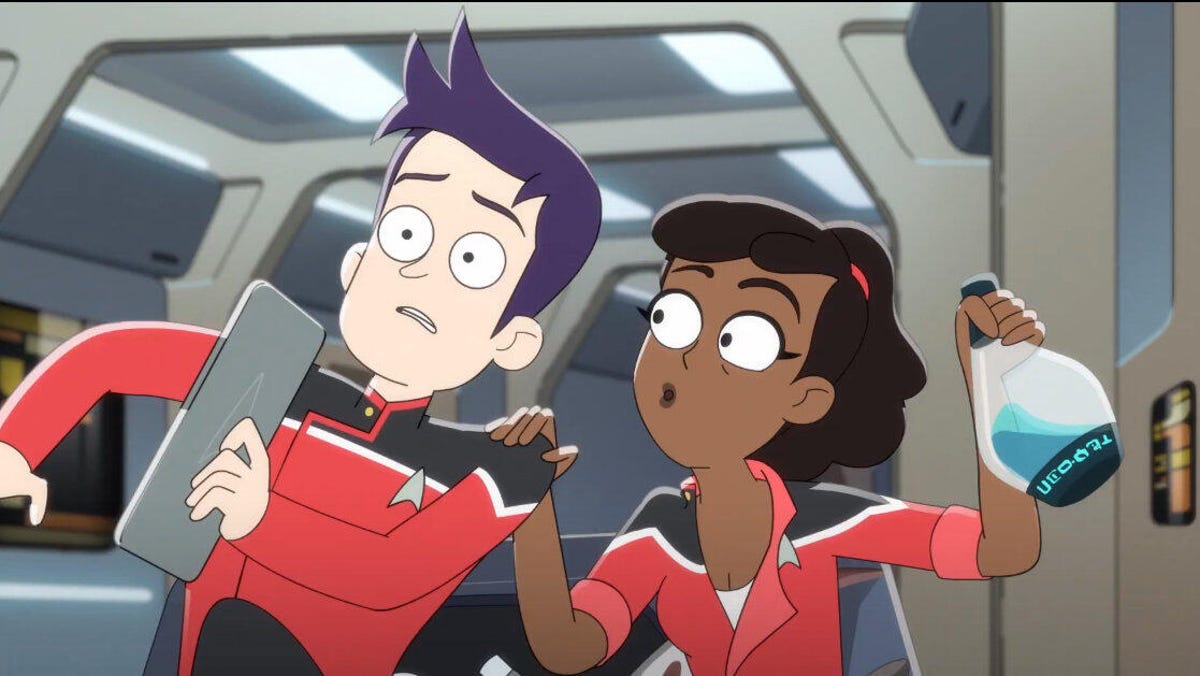
Video screenshot by Amanda Kooser/CNET
This one was a surprise for me. I’m not a Star Trek fan by any means — I saw the Chris Pine version when I was younger and liked it, but it didn’t spark anything. But let me tell you, Lower Decks actually got me curious about the Star Trek universe. It’s approachable, has an incredible cast and delivers a hilarious take on Star Trek. The stories take very familiar Star Trek/space exploration situations and show them from the perspective of the cadets from the lower parts of Star Trek ships. The series shows the grunt work, the bureaucracy and rivalries and I’m laughing every episode — not just because the writing is great, but because the show makes fun of the Star Trek universe in such a way that even someone who knows next to nothing about that world can appreciate it.
—Alexandra Able
Fleishman Is in Trouble
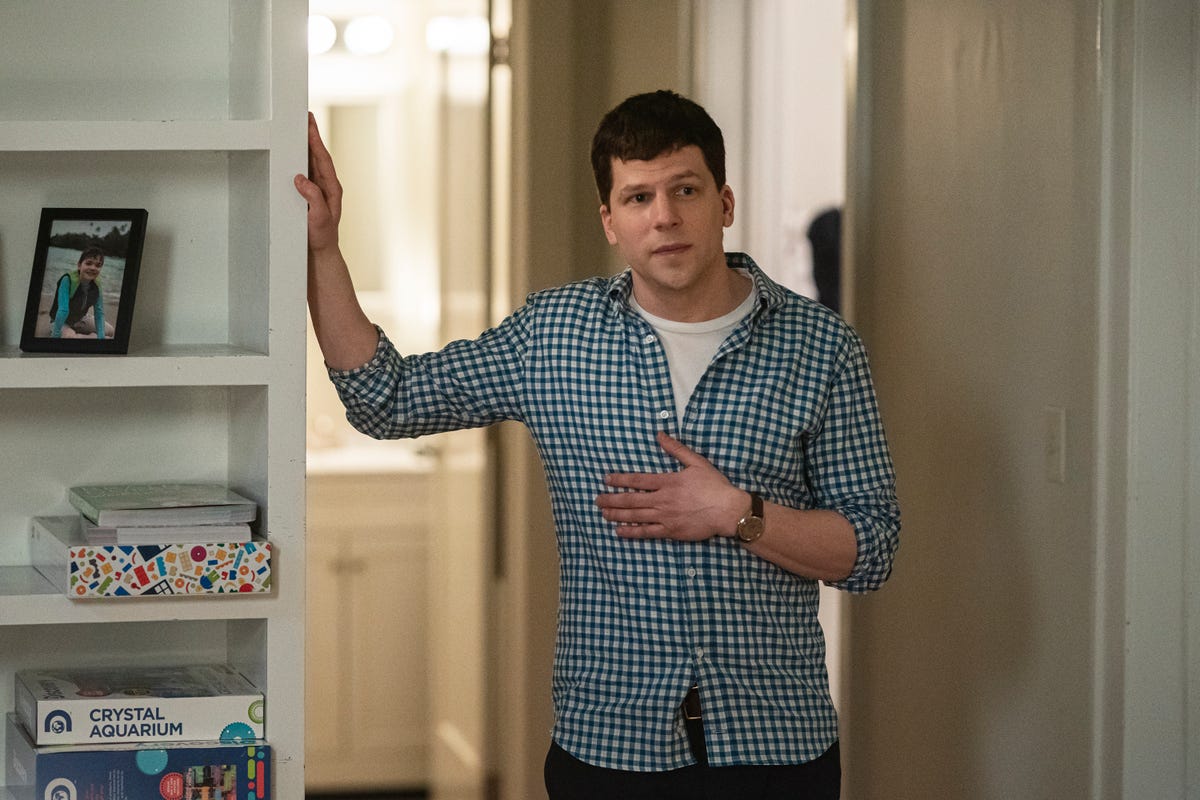
Michael Parmelee/FX
These days, there’s no better television genre than the bait-and-switch. Since every story has supposedly already been told, shows like Hulu’s Fleishman Is In Trouble, based on the popular novel of the same name, have turned the tables and defied audience expectations in the most satisfying of ways.
The titular Fleishman is either a divorced NYC liver doctor navigating his newfound dating success on “the apps,” or his ex-wife, who has gone missing. It all comes together under the judgmental eye and sardonic narration of Toby’s friend Libby, who ends up being much more integral than she seems.
—Karisa Langlo
The Offer
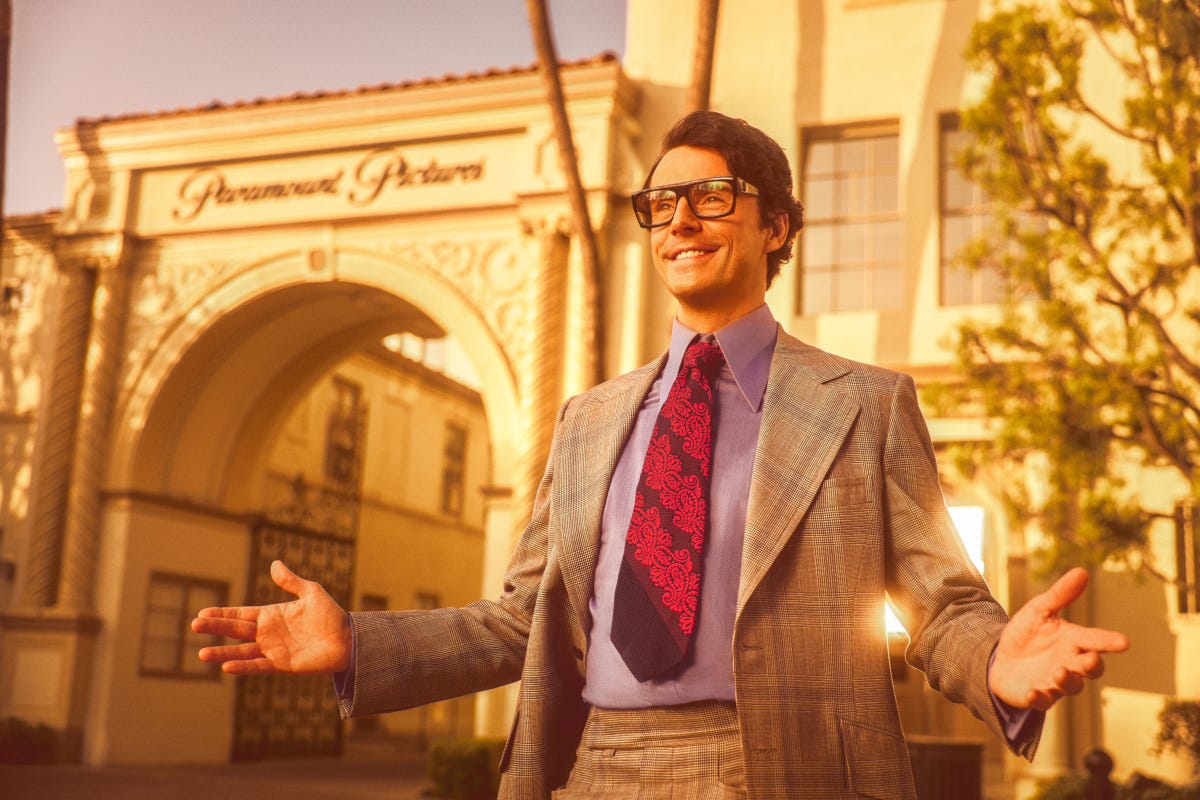
Miller Mobley/Paramount Plus
Fifty years after The Godfather’s release, the movie and the mystique surrounding it still captivate audiences. The Offer presents a dramatized behind-the-scenes look at the battle to get the movie made. Based on producer Albert S. Ruddy’s experience making the movie, The Offer is a 10-part limited series on Paramount Plus that often weaves much of the movie’s plot into the TV series. Not coincidentally, Paramount is also the studio that made the 1972 hit movie. It’s also the studio that almost didn’t make the movie we all know.
Ruddy, a former computer programmer at the Rand Corporation, is handed The Godfather by legendary film producer Robert Evans, brought back to life spot on by Matthew Goode, who sometimes puts the screws to Ruddy and director Francis Ford Coppola over casting choices. (Marlon Brando was a financial wild card, and Al Pacino was too short for Evans’ tastes.) Then there’s the Mob. They make it clear in no uncertain terms they don’t want the movie made, until Coppola agrees to make changes to the final script.
Besides, to Coppola the artist, it’s not a mob movie but “a metaphor for American capitalism.” It’s also worth tuning in to see what transpires with Frank Sinatra and the infamous horse head.
—Steven Musil
